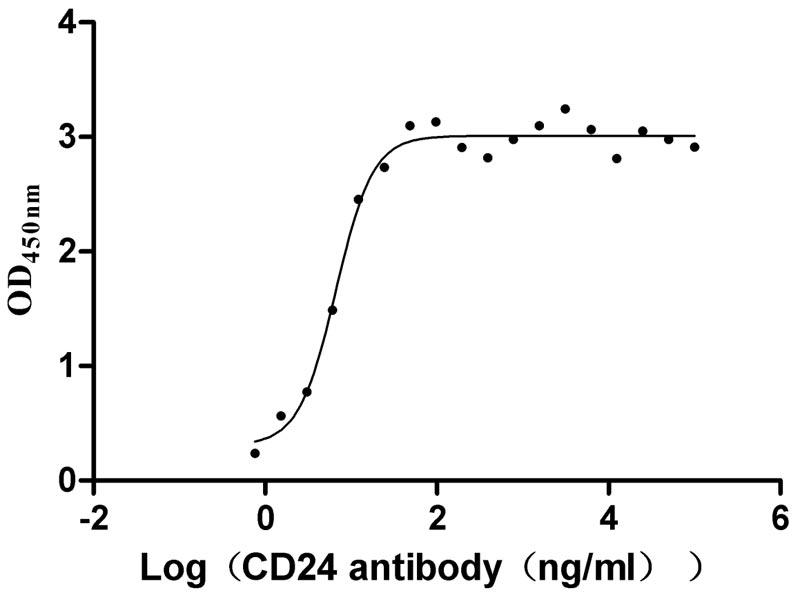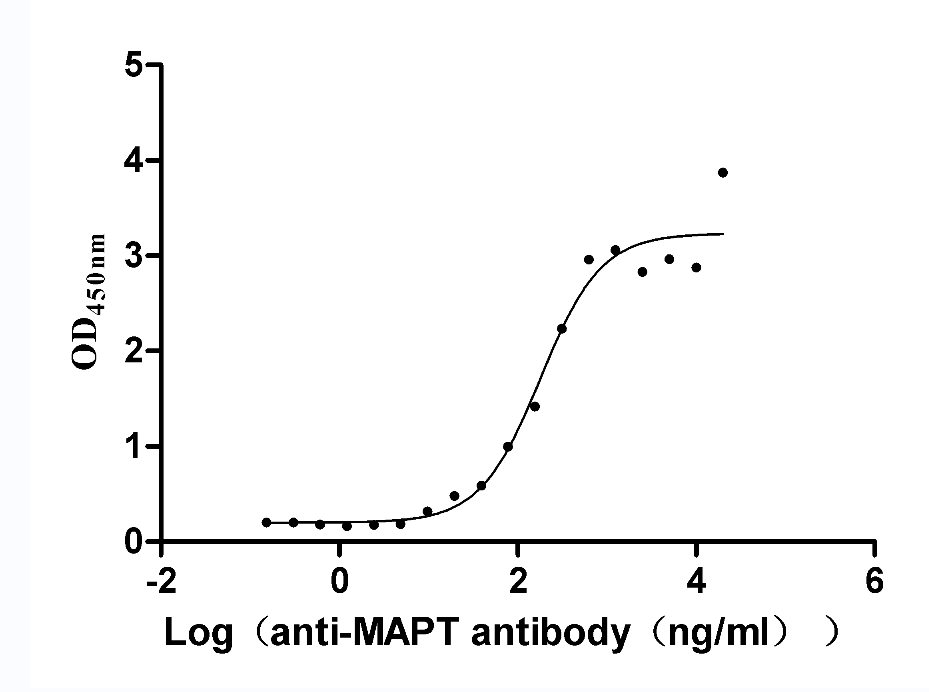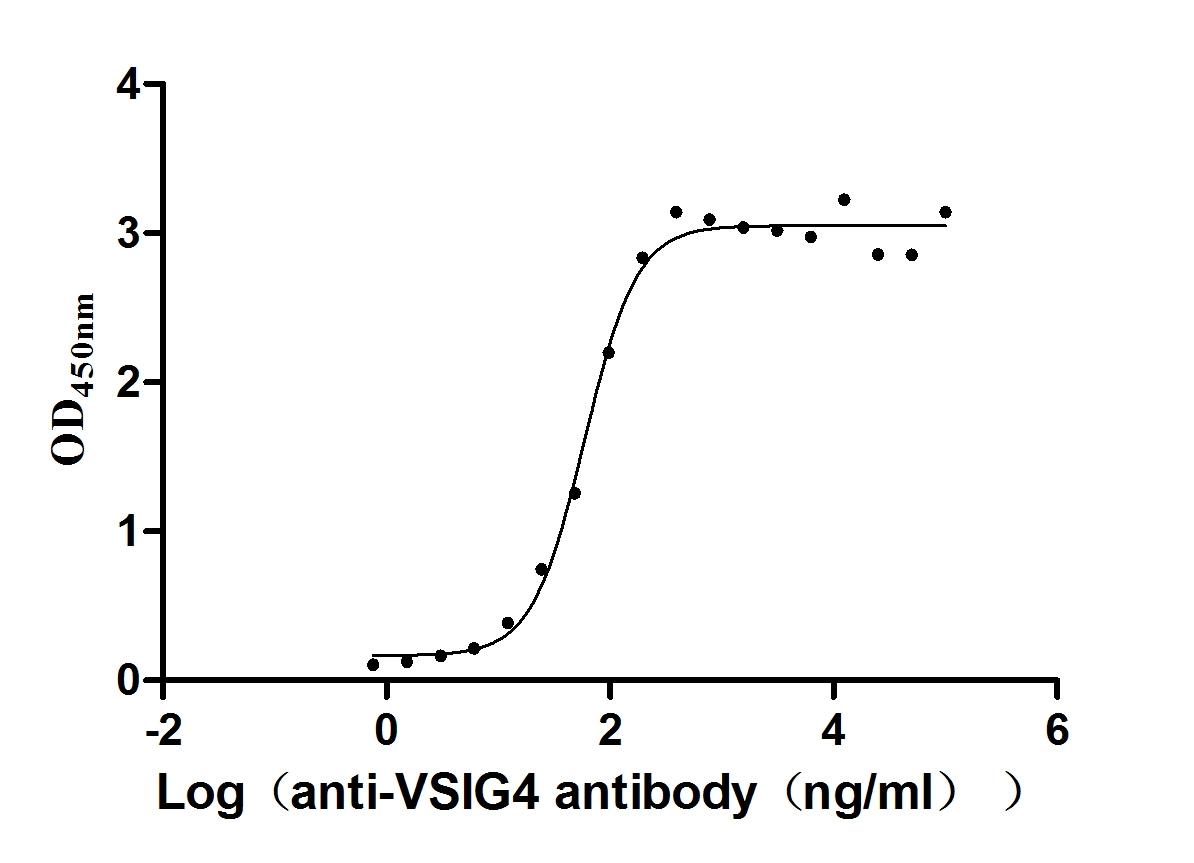Recombinant Mouse Sodium/hydrogen exchanger 4 (Slc9a4), partial
-
中文名稱:小鼠Slc9a4重組蛋白
-
貨號(hào):CSB-YP805960MO
-
規(guī)格:
-
來(lái)源:Yeast
-
其他:
-
中文名稱:小鼠Slc9a4重組蛋白
-
貨號(hào):CSB-EP805960MO
-
規(guī)格:
-
來(lái)源:E.coli
-
其他:
-
中文名稱:小鼠Slc9a4重組蛋白
-
貨號(hào):CSB-EP805960MO-B
-
規(guī)格:
-
來(lái)源:E.coli
-
共軛:Avi-tag Biotinylated
E. coli biotin ligase (BirA) is highly specific in covalently attaching biotin to the 15 amino acid AviTag peptide. This recombinant protein was biotinylated in vivo by AviTag-BirA technology, which method is BriA catalyzes amide linkage between the biotin and the specific lysine of the AviTag.
-
其他:
-
中文名稱:小鼠Slc9a4重組蛋白
-
貨號(hào):CSB-BP805960MO
-
規(guī)格:
-
來(lái)源:Baculovirus
-
其他:
-
中文名稱:小鼠Slc9a4重組蛋白
-
貨號(hào):CSB-MP805960MO
-
規(guī)格:
-
來(lái)源:Mammalian cell
-
其他:
產(chǎn)品詳情
-
純度:>85% (SDS-PAGE)
-
基因名:Slc9a4
-
Uniprot No.:
-
別名:Slc9a4; Nhe4; Sodium/hydrogen exchanger 4; Na(+)/H(+) exchanger 4; NHE-4; Solute carrier family 9 member 4
-
種屬:Mus musculus (Mouse)
-
蛋白長(zhǎng)度:Partial
-
蛋白標(biāo)簽:Tag?type?will?be?determined?during?the?manufacturing?process.
The tag type will be determined during production process. If you have specified tag type, please tell us and we will develop the specified tag preferentially. -
產(chǎn)品提供形式:Lyophilized powder
Note: We will preferentially ship the format that we have in stock, however, if you have any special requirement for the format, please remark your requirement when placing the order, we will prepare according to your demand. -
復(fù)溶:We recommend that this vial be briefly centrifuged prior to opening to bring the contents to the bottom. Please reconstitute protein in deionized sterile water to a concentration of 0.1-1.0 mg/mL.We recommend to add 5-50% of glycerol (final concentration) and aliquot for long-term storage at -20℃/-80℃. Our default final concentration of glycerol is 50%. Customers could use it as reference.
-
儲(chǔ)存條件:Store at -20°C/-80°C upon receipt, aliquoting is necessary for mutiple use. Avoid repeated freeze-thaw cycles.
-
保質(zhì)期:The shelf life is related to many factors, storage state, buffer ingredients, storage temperature and the stability of the protein itself.
Generally, the shelf life of liquid form is 6 months at -20°C/-80°C. The shelf life of lyophilized form is 12 months at -20°C/-80°C. -
貨期:Delivery time may differ from different purchasing way or location, please kindly consult your local distributors for specific delivery time.Note: All of our proteins are default shipped with normal blue ice packs, if you request to ship with dry ice, please communicate with us in advance and extra fees will be charged.
-
注意事項(xiàng):Repeated freezing and thawing is not recommended. Store working aliquots at 4°C for up to one week.
-
Datasheet :Please contact us to get it.
靶點(diǎn)詳情
-
功能:Involved in pH regulation to eliminate acids generated by active metabolism or to counter adverse environmental conditions. Major proton extruding system driven by the inward sodium ion chemical gradient. Plays an important role in signal transduction. May play a specialized role in the kidney in rectifying cell volume in response to extreme fluctuations of hyperosmolar-stimulated cell shrinkage. Is relatively amiloride and ethylisopropylamiloride (EIPA) insensitive. Can be activated under conditions of hyperosmolar-induced cell shrinkage in a sustained intracellular acidification-dependence manner. Activated by 4,4'-diisothiocyanostilbene-2,2'-disulfonic acid (DIDS) in a sustained intracellular acidification-dependence manner. Affects potassium/proton exchange as well as sodium/proton and lithium/proton exchange. In basolateral cell membrane, participates in homeostatic control of intracellular pH, and may play a role in proton extrusion in order to achieve transepithelial HCO3(-) secretion. In apical cell membrane may be involved in mediating sodium absorption. Requires for normal levels of gastric acid secretion, secretory membrane development, parietal cell maturation and/or differentiation and at least secondarily for chief cell differentiation.
-
基因功能參考文獻(xiàn):
- Disruption of murine NHE4 leads to metabolic acidosis with inappropriate urinary ammonia excretion and decreases the ability of the thick ascending limb to absorb ammonia and to build the corticopapillary ammonia gradient. PMID: 22088435
- the mRNAs of different NHE isoforms as well as their subcellular localization (apical versus basolateral) and functional activity were investigated in mouse endometrial epithelial cells PMID: 12493726
- NHE4, which may normally be coupled with the AE2 Cl-/HCO3- exchanger, is important for normal levels of gastric acid secretion, gastric epithelial cell differentiation, and development of secretory canalicular and tubulovesicular membranes PMID: 15684419
- Dra is the major Cl(-)/HCO(3)(-) exchanger coupled with Nhe3 for electroneutral NaCl absorption across mammalian small intestine. PMID: 18930060
-
亞細(xì)胞定位:Basolateral cell membrane; Multi-pass membrane protein. Apical cell membrane; Multi-pass membrane protein. Zymogen granule membrane; Multi-pass membrane protein.
-
蛋白家族:Monovalent cation:proton antiporter 1 (CPA1) transporter (TC 2.A.36) family
-
組織特異性:Expressed in kidney. Expressed in uterus and endometrial epithelial cells. Expressed in the inner segments of inner medullary collecting ducts (IMCD) in kidney.
-
數(shù)據(jù)庫(kù)鏈接:
Most popular with customers
-
Recombinant Human B- and T-lymphocyte attenuator (BTLA), partial (Active)
Express system: Mammalian cell
Species: Homo sapiens (Human)
-
Recombinant Human Tumor necrosis factor ligand superfamily member 8 (TNFSF8), partial (Active)
Express system: Mammalian cell
Species: Homo sapiens (Human)
-
Recombinant Human Signal transducer CD24 (CD24)-Nanoparticle (Active)
Express system: Mammalian cell
Species: Homo sapiens (Human)
-
Recombinant Human C-X-C chemokine receptor type 4 (CXCR4)-VLPs (Active)
Express system: Mammalian cell
Species: Homo sapiens (Human)
-
Recombinant Rat Intestinal-type alkaline phosphatase 1 (Alpi) (Active)
Express system: Mammalian cell
Species: Rattus norvegicus (Rat)
-
Recombinant Rat Microtubule-associated protein tau (Mapt) (Active)
Express system: Mammalian cell
Species: Rattus norvegicus (Rat)
-
Recombinant Human Microtubule-associated protein tau (MAPT) (Active)
Express system: Mammalian cell
Species: Homo sapiens (Human)
-
Recombinant Human V-set and immunoglobulin domain-containing protein 4 (VSIG4), partial (Active)
Express system: Mammalian cell
Species: Homo sapiens (Human)





-AC1.jpg)


-AC1.jpg)









